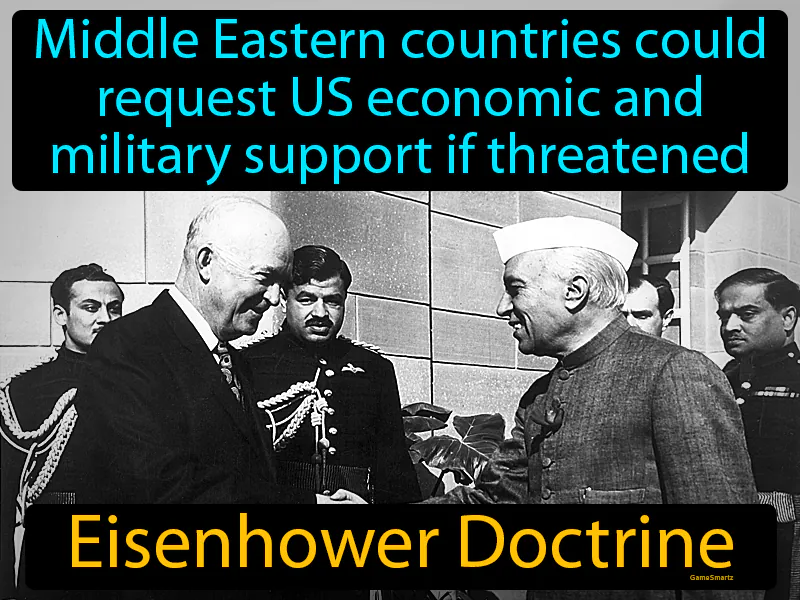Eisenhower Doctrine

The Eisenhower Doctrine was a policy announced by President Dwight D. Eisenhower in 1957, during the Cold War. It allowed Middle Eastern countries to request U.S. economic or military assistance if they felt threatened by the spread of communism. This doctrine was important because it aimed to prevent Soviet influence in the oil-rich Middle East, crucial for global energy supplies. Today, the doctrine's legacy continues as the U.S. remains involved in Middle Eastern affairs, often to ensure regional stability and secure energy resources. For instance, when gas prices rise due to conflicts in the Middle East, it affects everyday expenses for people, showing how historical policies still influence our lives.
Practice Version

Eisenhower Doctrine: Middle Eastern countries could request US economic and military support if threatened. Eisenhower Doctrine. The Eisenhower Doctrine was a policy that promised American assistance to any Middle Eastern country resisting communism during the Cold War.